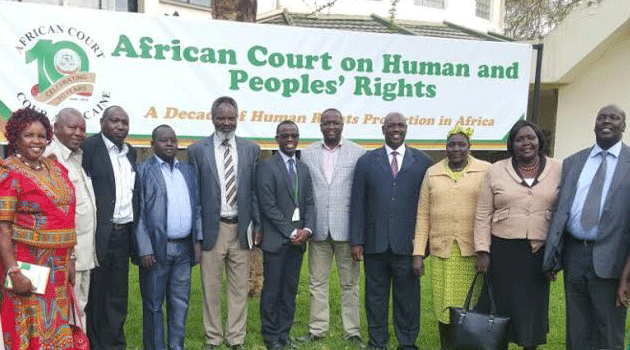The leaders from the County Assembly were keen to learn on the operations of the Arusha-based court to help them improve on their legislations, as well as explore ways of filing cases there.
They were led by the County Assembly Speaker William Kamket.
Sukhdev Chhatbar, the AfCHPR Communications boss told Capital FM News that the team from Baringo was taken through the process of filing cases as well as the entire operations of the court.
“We encourage such visits because they serve to sensitize various groups and individuals on the court’s work,” Chhatbar told Capital FM News on telephone from Arusha.
The continental court is already seized with a case by the minority Ogiek community where it was referred by the African Commission on Human and Peoples’ Rights in 2012 because they could file it directly.
The community has sued the Kenyan government for evicting them from their ancestral land under the auspices of a notice to conserve the forest as a ‘reserved water catchment zone’.
The Ogiek community argues that their eviction will have far reaching consequences on their political, social and economic survival.
Newly elected Vice President of the African Court Ben Kioko last week urged Kenya and other countries in the continent to file a declaration recognizing the competence of the Court to receive cases from NGOs and individuals.
Even though 30 African countries have ratified a protocol establishing the African Court on Human and People’s Rights (AFCHPR), only eight have made the declaration allowing their individual citizens and NGO’s to directly file cases.
“Other than ratifying the protocol, countries should also make the declaration. It is absolutely important,” Justice Kioko told Capital FM News in an interview in Arusha last week, and dismissed fears by most countries that they will face a plethora of cases once they file the declaration.
“The fear of countries that filing the declaration will have them inundated with cases is false and unfounded,” he said, citing the example of Ghana which filed the declaration but no case has been filed against it by its citizens or NGOs to date.
Kenya is among 30 countries that have ratified the protocol establishing the Arusha, Tanzania-based court but is yet to file the declaration.












































